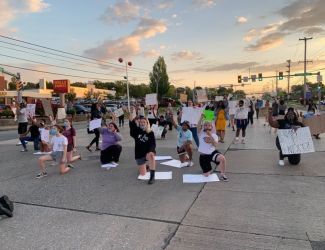On Jan. 12, 2023, in a letter to the College Board, The Florida Department of Education announced it would block advanced placement courses in high schools teaching African American history. This action had the backing of Florida Gov. Ron DeSantis.
The course in question covered more than 400 years of African American history, including topics like literature, political science, and geography.
Public high schools don’t integrate enough Black history into their curriculum. So far, 17 states have placed restrictions on what is allowed to be taught in schools regarding Black history and Black History Month. Black educators who teach social studies or history are now in danger of reprisal when expressing their thoughts about Black history. The result is that students only receive a partial education in U.S. history.
Whether this censorship stems from politics, or strictly faults in the education system, there shouldn’t be an excuse for erasing Black history. There are many important Black figures in the United States students may learn about in school, but there are so many more who are just as crucial (in their own way) to U.S. and Black History as Rosa Parks, Martin Luther King Jr., and Harriet Tubman.
Black history you never learned
Many inventions that have been adapted over time were created in the imaginations and workshops of African Americans. The gas mask, home security systems, lawnmowers, and refrigerated trucks for shipping frozen goods are just a few of these.
Why is it that we do not teach the stories of these Black pioneers? Have you heard of Garrett Morgan, inventor of the three-light traffic system? Or, that he was so devastated by the tragedy of the Triangle Shirtwaist Factory that he created the gas mask? How many lives have Morgan’s inventions saved?
For many the name, James Hemings won’t ring a bell. He was the enslaved African American chef who popularized many of the foods that we still eat today, such as macaroni and cheese, french fries, and more. Hemings lived from 1765-1801 and was born enslaved. He was owned by the third American president, Thomas Jefferson.
In 1784 Hemings traveled to Paris, France with Jefferson, where he learned the art of French cuisine. When he returned to the United States Jefferson signed a document relieving him of his duties, and on Feb. 5, 1796, he was a free man.
The catch was that he had to train a cook of Thomas Jefferson’s choice as his replacement. Jefferson chose Hemings’ brother, Peter, which guaranteed Peter’s lifelong enslavement. In 1801, James Hemings committed suicide.
This is a story that isn’t often taught during Black History Month. Hemings’ half-sister, Sally Hemings, was arguably one of the most famous enslaved women, and one of many who were forced to bear their enslavers’ children. Along with her children, Hemings was able to escape enslavement after Jefferson’s death, 50 years before the Emancipation Proclamation.
Out of the 700 hundred people enslaved by Jefferson, Hemings and her family were the only ones he freed. These are the kinds of stories that are not taught in schools but which belong in any classroom discussion of the nation’s founding fathers and our country’s history.






